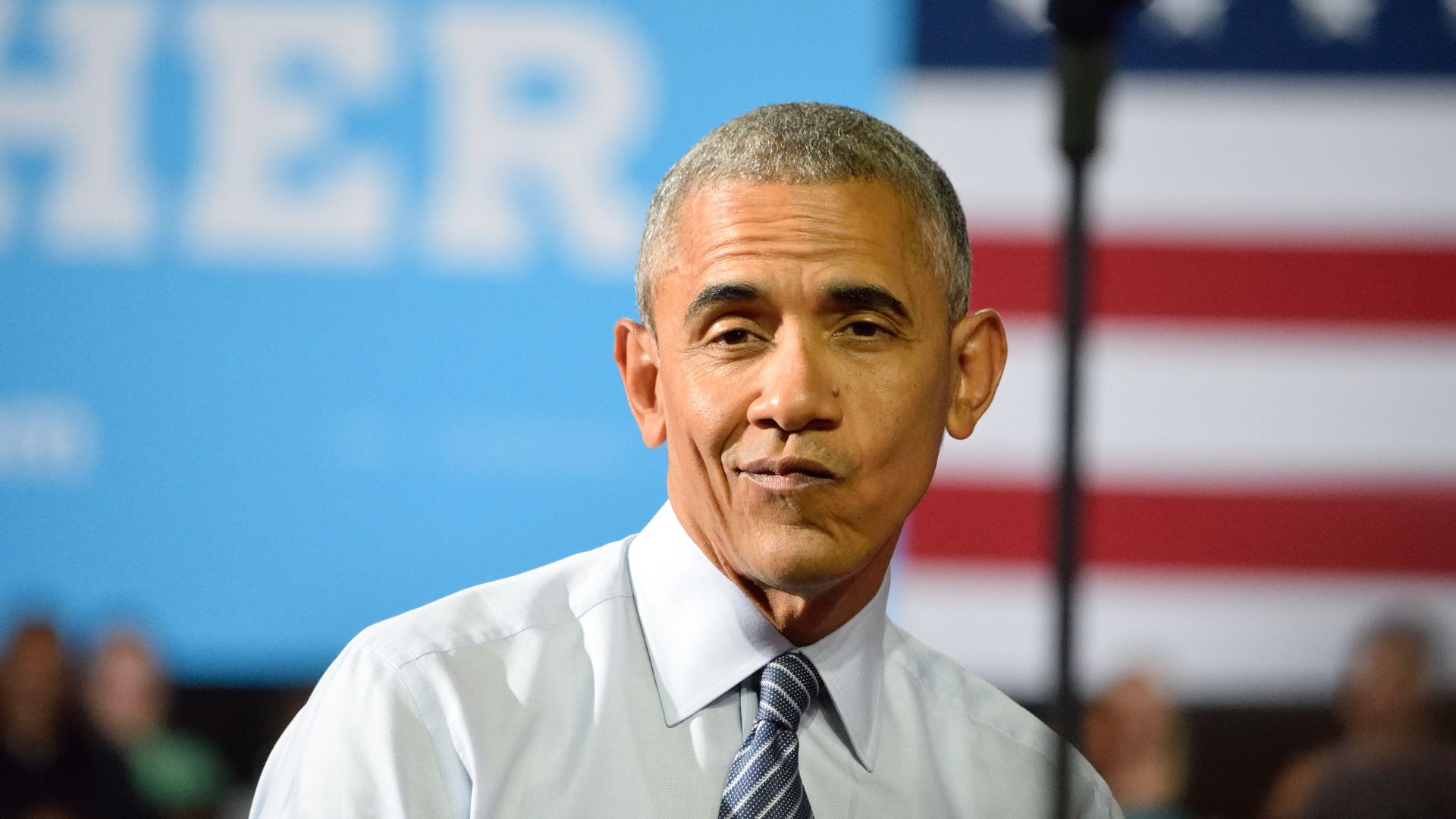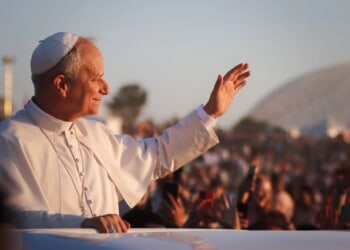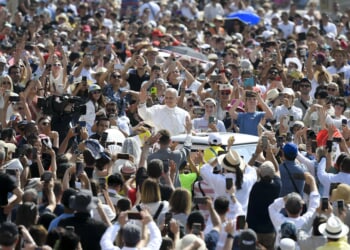
During a public appearance at The Connecticut Forum’s “An Evening with President Barack Obama” on Tuesday, former President Barack Obama said that government intervention is necessary to regulate social media platforms in order to address what he described as growing misinformation and confusion between facts and opinions.
Speaking to a live audience, Obama said that the American public is increasingly divided over basic facts, which he claimed has undermined trust in public discourse and institutions.
“I’ve said this before, but I always repeat it,” Obama stated.
Trump’s Sovereign Wealth Fund: What Could It Mean For Your Money?
“You and I can have an opinion about this little side table. You know, you might not like the design. You might not like the color or how it’s finished, but we can have that discussion. If I say to you this is a lawnmower, you’ll think I’m crazy. And if I really believe it, I’ll think you’re crazy. And we’re now in a situation in which we are having these basic factual arguments. And that further undermines trust.”
Obama went on to reference Russian President Vladimir Putin and former White House Chief Strategist Steve Bannon in his remarks, suggesting both embraced disinformation tactics.
“Vladimir Putin and the KGB had a saying that was then adopted proudly by Steve Bannon, which was if you want propaganda to be effective [then] you don’t have to convince people that what you are saying is true,” Obama said.
“You just have to flood the zone with so much poop. They use a different word. But you have to flood the zone with so much untruth, constantly, that at some point people don’t believe anything.”
This Could Be the Most Important Video Gun Owners Watch All Year
Obama continued by addressing the potential effects of political messaging and false claims, referencing an unnamed presidential candidate.
“So it doesn’t matter if a candidate running for office just is constantly, just hypothetically, saying untrue things, or if an elected president claims that he won when he lost and that the system was rigged, but then when he wins, then it isn’t rigged, because he won,” he said.
“It doesn’t matter if everybody believes it. It just matters if everybody starts kind of throwing up their hands and saying ‘Well, I guess it doesn’t matter.’”
The former president said these conditions are dangerous and urged news outlets and social media platforms to experiment with new forms of journalism that better differentiate between fact and opinion.
“So one of the things I think, Heather, you’re doing, for those of you who don’t know her newsletter, it’s an example of, give you a little plug here. But part of what we’re going to have to do is to start experimenting with new forms of journalism and how do we use social media in ways that reaffirm facts, separate facts from opinion,” Obama said.
“We want diversity of opinion. We don’t want diversity of facts. And how do we train and teach our kids to distinguish between those things?”
Obama concluded by calling for regulatory measures to address how social media platforms promote content.
“That, I think, is one of the big tasks of social media,” he said.
“By the way, it will require some government, I believe, some government regulatory constraints around some of these business models in a way that’s consistent with the First Amendment, but that also says, look, there is a difference between these platforms letting all voices be heard versus a business model that elevates the most hateful voices or the most polarizing voices or the most dangerous, in the sense of inciting violence.”
He added, “That, I think, is going to be a big challenge for all of us that we’re going to have to undertake.”
However, recent research calls into question the narrative that misinformation is the primary driver of public distrust in media and institutions.
A 2024 Knight Foundation study titled From Trust to Disagreement: Disentangling the Interplay of Misinformation and Polarization in the News Ecosystem suggested that misinformation tends to receive lower trust scores from consumers compared to factual reporting.
The study noted that political polarization may have a greater influence on declining public trust than misinformation alone.
Similarly, a March 2025 study, Trust in Disinformation Narratives: A Trust in the News Experiment, found that political ideology, subject matter, and the use of inflammatory language in news articles had more impact on trust than the factual accuracy of the content. The study also noted that who authored the article had minimal effect on audience perception of trustworthiness.
Obama’s remarks add to an ongoing national debate over the role of government in regulating online speech and the balance between combating disinformation and protecting free expression.
Connect with Vetted Off-Duty Cops to Instantly Fulfill Your Security Needs







![Florida Man With Violent History Arrested for Choking a Cop [WATCH]](https://www.right2024.com/wp-content/uploads/2025/06/Eleven-Stabbed-in-Attack-at-Salem-Homeless-Shelter-Across-From-350x250.jpg)







